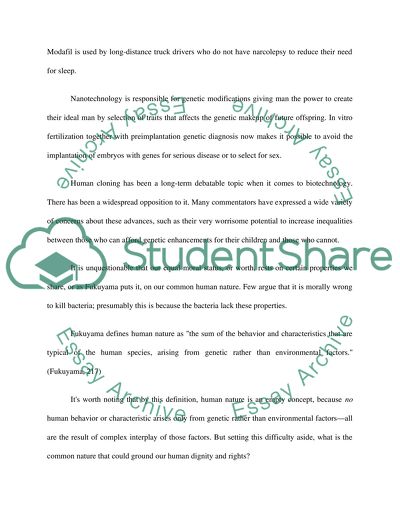Cite this document
(“Francis Fukuyama' s idea of human dignity Essay”, n.d.)
Retrieved from https://studentshare.org/philosophy/1521011-francis-fukuyama-s-idea-of-human-dignity
Retrieved from https://studentshare.org/philosophy/1521011-francis-fukuyama-s-idea-of-human-dignity
(Francis Fukuyama' S Idea of Human Dignity Essay)
https://studentshare.org/philosophy/1521011-francis-fukuyama-s-idea-of-human-dignity.
https://studentshare.org/philosophy/1521011-francis-fukuyama-s-idea-of-human-dignity.
“Francis Fukuyama' S Idea of Human Dignity Essay”, n.d. https://studentshare.org/philosophy/1521011-francis-fukuyama-s-idea-of-human-dignity.


